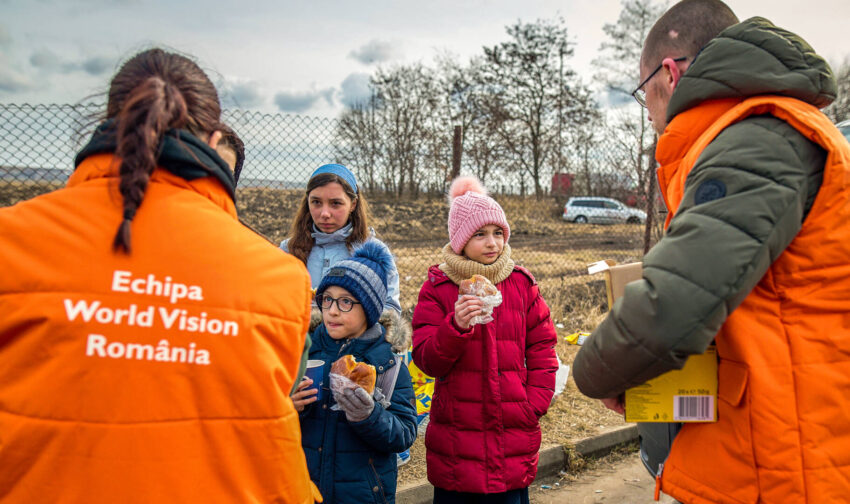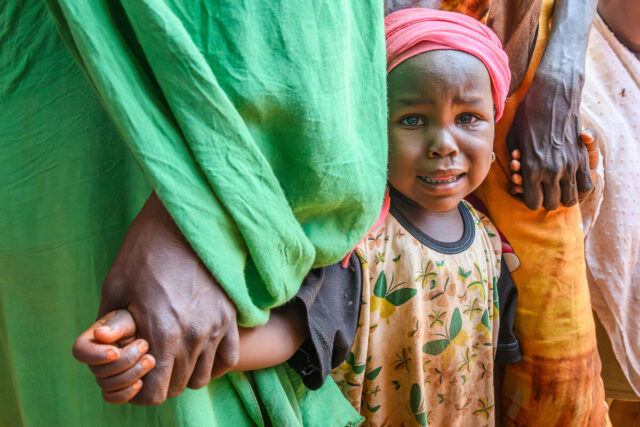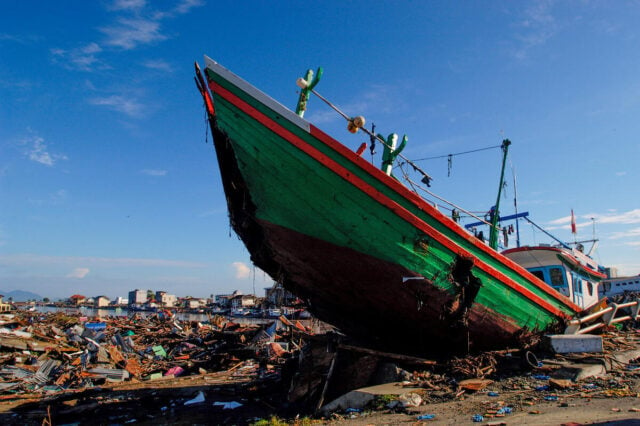An outpouring of compassion has greeted refugees fleeing across the Ukraine border into Romania, where World Vision is working to support vulnerable children and their families. The United Nations says the escalating conflict in Ukraine has pushed nearly 500,000 people across the country’s borders in what is described as a “fast-growing refugee emergency.”
Alberto Roca of World Vision’s Romania office is serving along the northeastern border of Romania, where World Vision is scaling up to assist refugees.
Tell us about your experience at the border.
On the Ukrainian side of the border to Romania, the line stretched over 10 kilometers (6 miles). I was on the Romanian side. I saw hundreds of mothers who have been forced to flee their homes alone with their children. They are without their husbands. The men are staying behind in Ukraine to fight. I saw confused children. I could see the despair in their eyes. Mothers pulled their youngsters along by the hand like suitcases, in a hurry to escape danger. The most emotional thing for me was seeing the children smile when receiving toy gifts. I knew that in all likelihood, in the rush to leave home, they had probably not found space in their bags to pack their favorite toys.
What are children and mothers sharing with you?
Mothers were confused, afraid at the thought that they will probably have to care for their children alone, without their partners. Girls and boys have been deprived of family security.
What kind of support were you able to provide?
I talked to refugees and provided moral support, along with food, water, and hygiene products.
What are going to be the biggest needs of refugees arriving in Romania from Ukraine?
Mothers with children need emotional support, food, and accommodation and transportation to get to relatives in Romania or elsewhere in Europe. They need somewhere to stay and feel safe.
Read Ukraine crisis: Facts, FAQS, and how to help
How do you see the situation developing?
All needs — food, housing, emotional support, and transportation — are going to grow and grow as more refugees arrive in Romania. Available accommodation, which is already in short supply, will soon become exhausted. We expect an increasing number of people to arrive, given that the escalation of hostilities in Ukraine only started a few days ago.
How are Romanians responding and what is their feeling about helping their neighbors?
I’m proud of how Romanians and civil society here are handling the situation. People are showing empathy and support, and have immediately organized to help people arriving from Ukraine, doing all they can to assist. There were many food distribution points with clothes and other products needed for daily use being handed out at the border point. World Vision was one of many organizations helping.
What is World Vision planning on doing to support refugees in Romania?
We are assessing the long-term needs of the displaced. We’re working to find accommodations for refugees, provide food and phone cards, and help people get transportation to their desired destinations. We are organizing teams to provide psychosocial support and counseling. We want children to be safe and we’re working to create programs that are protective and caring.
How can we pray?
I think this is a moment of action and a moment of prayer. Only God can help the Ukrainian people have a country that is safe once more. I have hope that with all our prayers, they will.
What have you been praying for?
I’m praying for the children of Ukraine to be safe. I think in this moment they’re so scared that they could suffer trauma that will last a lifetime. We must be there to help them.
This interview has been edited for length and clarity.
***
World Vision staff Romania are distributing emergency aid packages to children and families crossing the border, including hygiene and child-friendly kits. We also aim to support educational continuity for children who can no longer attend school.
World Vision has been present in Eastern Europe since the early 1990s, responding to natural disasters, conflict, refugee movements, and economic hardship. We prioritize the educational, physical, and emotional needs of extremely vulnerable children and have the expertise and the relationships with partners to scale up our response in accordance to humanitarian need. We assisted 3.2 million people across the Middle East and Eastern Europe last year with emergency response programs and are prepared to respond to this crisis well, with a focus on protecting the most vulnerable.


